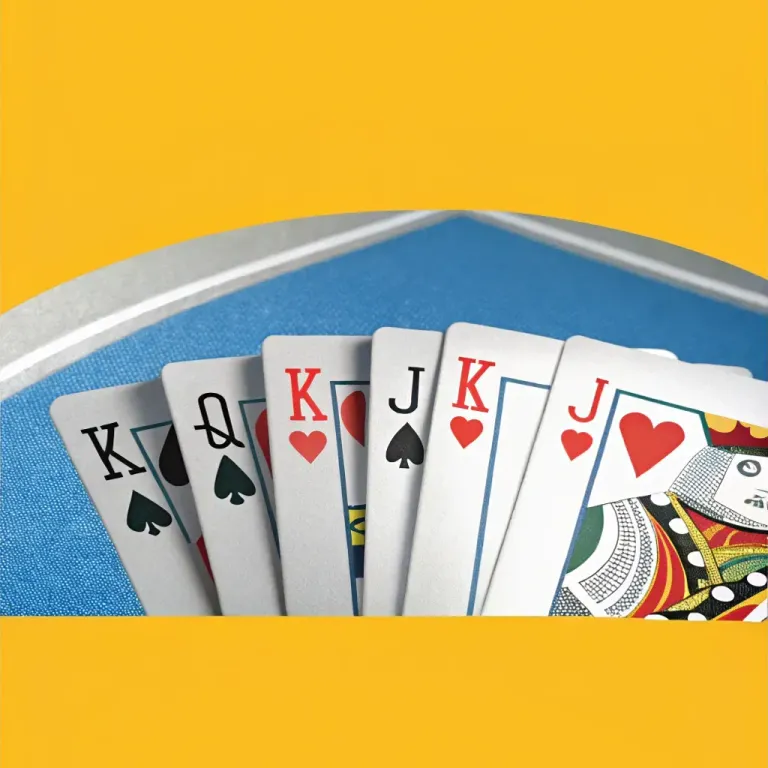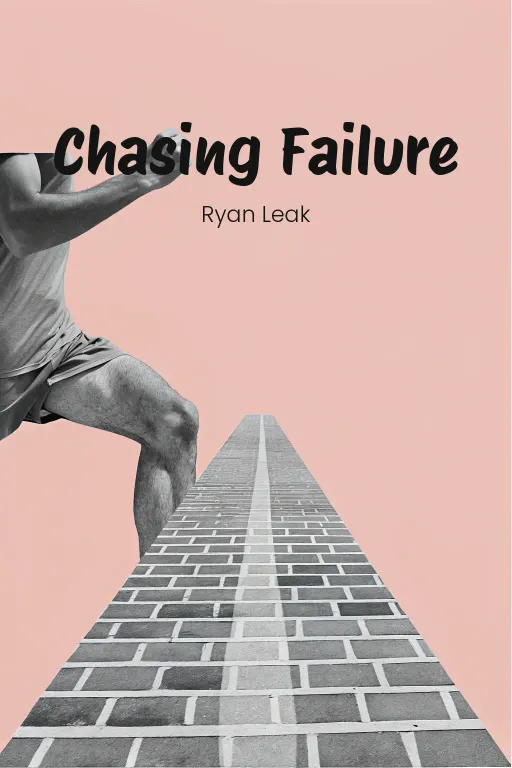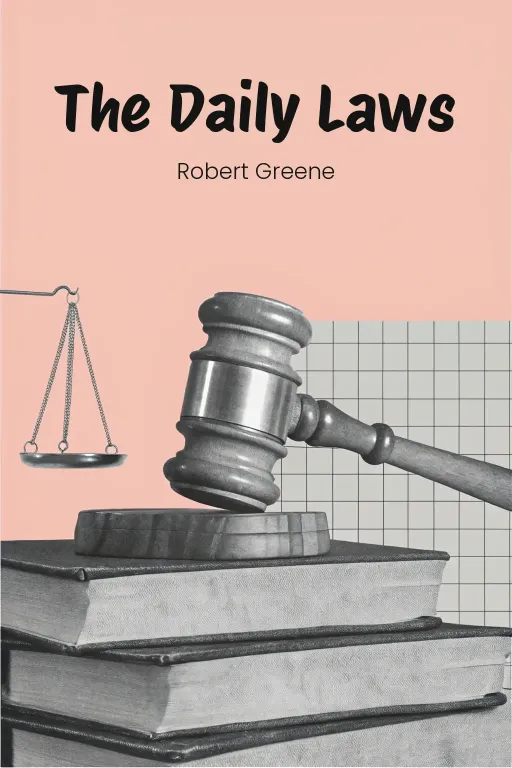
Life's a Bluff: Skill, Luck, and the Game
Podcast by Beta You with Alex and Michelle
How I Learned to Pay Attention, Master Myself, and Win
Life's a Bluff: Skill, Luck, and the Game
Part 1
Alex: Hey everyone, welcome back! Michelle, tell me, have you ever felt like you were totally on top of things, only to have some random event completely derail you? Michelle: Ugh, does spending hours building IKEA furniture only to find out the last piece is missing count? Because yeah, I know that feeling. What are you getting at, Alex? Alex: Well, that's the kind of situation Maria Konnikova looks at in her book, The Biggest Bluff. Imagine deciding to become a professional poker player—not to win big, but to figure out how we deal with the unpredictability of life. Michelle: So, she started playing poker to study chaos? That sounds like a pretty expensive research project. Alex: Not exactly. The book unpacks Maria’s experiences. With guidance from poker pro Erik Seidel, she explores how we make decisions when things are uncertain, balancing skill with chance and managing our emotions. Michelle: Ah, I see. Poker as a big metaphor for… life? I'm sure that was intended. Alex: Absolutely! In today’s episode, we're focusing on three key insights. First, we'll tackle luck versus skill—how much control do we “really” have over success? Second, we will explore how she developed the resilience to stay calm under pressure. Finally, we’ll examine how she used societal biases at the poker table—like being underestimated as a woman—to her advantage. Michelle: Right, right. Luck, emotions, and strategy. Sounds like poker is less about the Hollywood bluffs and more about understanding yourself—and everyone else at the table. Alex: Exactly. Poker isn't just a game; it’s a way to understand life. Maria’s experience shows us that the cards we're dealt aren't as important as how we decide to play them. Michelle: Okay, I'm intrigued. Let’s see if this holds up to a little skepticism.
The Interplay of Luck and Skill
Part 2
Alex: So, Michelle, let's get started by diving into what luck and skill “really” mean—both in poker and in life. Maria Konnikova's whole journey, as you know it, began with a pretty simple but profound question: How much of what happens to us is just plain luck, and how much is actually the result of our own choices and abilities? Michelle: Exactly, and poker acts as the perfect testing ground, right? You've got the skill involved—calculating odds, reading people, all that—but then bam!, you're hit with pure randomness, like being dealt a truly terrible hand. Talk about life distilled into chips and cards! But where do you even begin to draw that line? Do we just chalk up every bad break to luck and every win to skill? Alex: Ah, that's the million-dollar question, isn't it? And Maria really digs into that ambiguity. In poker, luck is random—like which cards actually show up on the flop or the turn—and, obviously, it's completely beyond your control. But skill? That's where the real magic begins to happen. It's all about how you interpret those cards. How you read your opponents. How you assess the overall game situation. And Erik Seidel, her mentor, really hammered this point home. He'd always say, "You can make all the right decisions and still lose because luck always has a seat at the table." Michelle: So, it's almost like running a marathon on an icy road. Sure, you might train endlessly—perfecting your stride, eating all the right carbs—but all it takes is one slip on the ice to wipe you out entirely. Does that mean all that training was pointless? Alex: Not in the slightest! The training is still incredibly important because, over many marathons—or, you know, hundreds of poker hands—skill will rise to the top. Maria learned that poker isn't about winning every single hand you play; it's about making the best decisions you can with the information you have available to you, even when randomness just isn't on your side that day. Michelle: Okay, sounds simple enough in theory. But surely, just constantly losing to dumb luck must drive even the most level-headed people a little insane, right? Alex: Absolutely, and this is where we start getting into the psychological effects of luck. There's this one unforgettable moment in the book where Maria's participating in her very first World Series of Poker tournament. She’s been preparing for months. Has been meticulously studying hands and strategies. But then—out of nowhere—a sudden migraine hits her, and she ends up on the bathroom floor, all while these key rounds are happening without her. Michelle: Ouch! Just think about how much it would suck to prepare for the biggest exam of your life, and then you end up getting food poisoning right in the middle of the test? Wow, that is luck just kicking down the door and completely trashing the place. Alex: Exactly! And Maria's takeaway was brutal, but also honest: "You can't bluff chance." There's no strategy you can devise to get out of it. It really forced her to come to terms with the idea that even with the best preparation, getting success is never a guarantee. Michelle: Which, I'm guessing, is not an easy pill for most people to just swallow. Humans are kind of wired to search for patterns and cause-and-effect relationships, right? So then when we lose—or, you know, just face horrible odds—we're tempted to look for reasons, even if randomness is truly to blame. Alex: That's a spot-on point, Michelle. And it’s not just about finding that meaning—it's also about understanding cognitive biases. Gambler's fallacy, for example. It's when people often think that because they've lost now, a win is "due" to them soon—like the universe is trying to balance the scales, right? Or the hot-hand fallacy, right, where you think you're on a winning streak because of some special skill, even when luck has a whole lot to do with it. Both can really skew your decision-making. Michelle: So basically, people go from just thinking the deck is unfair to thinking they’re somehow invincible—just two sides of the same coin. Alex: Exactly. And poker is particularly brutal because it really doesn’t cater to those biases. You can’t control the cards, but you can directly control how you respond to them. And this is where Maria starts to shift her entire mindset. She learns to simply tune out the noise of randomness and focus entirely on what she actually can control—her emotional discipline, and her decision-making process. Michelle: Alright, but that's definitely easier said than done, isn't it? Sure, you just lost a big hand or get blindsided by some incredibly bad luck—but how do you resist the urge to tilt, as they call it? Alex: Emotional discipline took her a very long time to master, and Erik was definitely instrumental in helping her get there. He'd keep reminding her: "Just focus on what you can control." It's really a mental reset that becomes so essential in these kinds of high-pressure situations. Take the time Maria misplayed a hand, right, during a critical tournament. She went all in, had all the confidence in the world with her pocket aces, but then ended up losing to a fluke straight. Instead of spiraling into despair, Erik encouraged her to just treat it as, "That's poker." Process the loss quickly, let it go, and then focus all your energy on the very next hand. Michelle: Man, that's tough. So, you've basically got to rewrite your brain's instinctive script completely: detach from the outcome entirely and just view every setback as temporary, not personal. Alex: Exactly. And in addition to emotional discipline, Maria learned to lean on something even more powerful: probabilistic thinking. Basically, it’s analyzing possibilities instead of fixating on certainties. In poker, that means calculating the actual likelihood of success in each decision and just accepting the losses as a part of the statistical game. In life, it's all about developing real resiliency, right? Expecting setbacks and just moving forward anyway. Michelle: Let me guess—she became the queen of folding, right? Alex: In some ways, yes! I mean, folding a hand—letting go of a losing cause—became symbolic for her. It’s not about surrendering; it’s about finding a calculated way to minimize losses and live to fight another day. It’s a truly applicable lesson: sometimes the smartest move isn’t about doubling down but walking away. Michelle: That's so fascinating because so many people hold on—whether it's a toxic job, a failing project, or even a doomed relationship—thinking they’ve already invested way too much to just quit. Alex: That’s the sunk-cost fallacy in action, and poker really teaches you to recognize it early and ruthlessly. Maria’s big breakthrough came not just in understanding randomness but in accepting it—letting luck just play its role without letting it define her. Michelle: Okay, I’ll admit it, that’s pretty compelling. So, Poker's teaching her to almost dance with the chaos rather than trying to wrestle it into any kind of submission. Alex: Exactly, Michelle. And that acceptance is what makes her story “really” resonate. By acknowledging luck, but also honing her skills, Maria finds that life, you know, just like poker, is about focusing on what’s within your control, staying adaptable, and ultimately staying in the game even when the cards aren’t going your way. Michelle: So the actual takeaway for people is: plan, prepare, and master your craft, but also be ready to just when life inevitably throws you some kind of totally cosmic curveball. Alex: Couldn’t have said it better myself, Michelle.
Emotional Resilience and Self-Awareness
Part 3
Alex: So, this naturally brings us to the importance of emotional resilience when we're dealing with uncertainty. Poker really forces players to face anxiety, self-doubt, and failure head-on. For Maria, having that emotional resilience and self-awareness became a game-changer, not just in poker, but in her whole approach to life. Michelle: Okay, so we're switching gears from the odds and probabilities to the emotional side of things, huh? Let me guess, the big idea here is how to stay sane, right, when it feels like fate is dealing you a bad hand after bad hand? Alex: That's definitely part of it! We'll start with some of Maria's personal emotional battles, then look at the strategies she used to overcome them, and then really connect it all to how we handle the curveballs that life throws at us. Michelle: Alright, I'm ready. What kind of emotional rollercoaster does poker take you on? Alex: Well, it might sound surprising, but Maria's first big challenge was impostor syndrome. I mean, she's got amazing credentials – a PhD in psychology, a bestselling author – and yet, she felt completely out of place at her very first poker tournament. Surrounded by seasoned pros, she just couldn't shake this feeling that she didn't belong. Michelle: So, walking into that poker room just triggered all those "What am I even doing here?" thoughts, huh? It's funny how that voice of self-doubt never really cares about your actual qualifications. Alex: Exactly! And for Maria, the stakes made it even worse. She was trying to prove herself in a male-dominated world. Imagine being a new player and having your first mistakes immediately jumped on by confident, even dismissive, opponents. Michelle: Let me guess – throw in some flashy bluffs and a few condescending smiles, and you've got the poker equivalent of hazing. Alex: Pretty much. Early on, she had this defining moment at the World Series of Poker. She had prepared so meticulously, but the pressure and self-doubt just became overwhelming. She actually got a migraine so bad she had to retreat to the bathroom. It really highlights how crippling impostor syndrome can be – she wasn't just questioning her skills; her body was shutting down from the stress of it all. Michelle: Wow, that’s rough. No matter how much you prepare, your mind can still play those "You're not good enough" tapes, huh? But seriously, Alex, what kept her from just packing it in right then and there? Alex: That's where Erik Seidel comes in. He has this amazing ability to ground her in moments of intense doubt. During that migraine, he sent her a simple text, "How’s it going?" And as simple as it sounds, it was like a lifeline. It reminded Maria that she wasn't alone in these battles. Having someone who believed in her really helped her start to rebuild her confidence. Michelle: Like a Yoda move – calm in the face of chaos. But someone cheering you on can only get you so far, right? How did Maria actually start dealing with those emotional roadblocks? Alex: That's where mentorship and having concrete strategies come into play. Erik introduced her to process-oriented thinking: focus on the decisions you make, not the outcomes. He had this mantra, “Forget it ever happened. Back to work.” It really sums up the mindset you need to bounce back, not just in poker, but in any high-pressure situation. Michelle: Decisions over outcomes... so, kind of a "control what you can, ignore what you can't" approach? Sounds simple enough, but I can't imagine that philosophy sticking without some serious practice. Alex: Definitely, it took practice. Maria also worked with Jared Tendler, a mental game coach, to really understand and track the emotions driving her actions. Tendler encouraged her to log her reactions – write down the moments when frustration, doubt, or even overconfidence crept into her game. Patterns started to emerge. She realized that self-doubt wasn't just a fleeting thing, it was actually connected to deeper fears about her own capabilities, fears rooted in her past. Michelle: So, by mapping out her emotional roadblocks, she was giving herself a kind of GPS, a way to know when she was drifting off course and then consciously correct it. Is that right? Alex: Absolutely. And through that conscious effort, she really reframed her inner voice. Instead of giving in to those impostor thoughts, like "I don't belong here," her mantra became, "You're not an impostor; you're learning." It might sound small, but repeating that really shifted her whole emotional framework. The result? She started playing each hand with a clearer mind, no longer weighed down by previous mistakes or anxieties about the future. Michelle: And I'm guessing this newfound clarity wasn't just theoretical, right? It had to show up in how she handled real pressure situations? Alex: Without a doubt. If we fast forward to her breakthrough at the PokerStars Caribbean Adventure, we see this transformation in action. She makes it to the final table, which is no small feat in itself, but then she makes a big mistake early on. She loses a third of her chips to an opponent's straight flush. Now, the old Maria might have spiraled, right, gone into total tilt mode. But, thanks to Erik's guidance and Tendler's methods, she actually took a mental timeout. She stepped away, recentered herself, and came back to the table with a focused, patient strategy. Michelle: Let me guess – it paid off big time. Alex: Exactly! By the end of the night, she not only got back on her feet but won the whole tournament. She walked away with $84,600 and a trophy, proving to herself that setbacks are “really” just setups for comebacks, if you can reset emotionally and stay composed. Michelle: Okay, I'll admit, that's pretty amazing. But, what I really love is that it wasn't some magical overnight change. It was consistent, intentional effort. Poker became her emotional training ground, building up her resilience, one hand at a time. Alex: Perfect analogy, Michelle. The emotional resilience Maria developed goes beyond poker. It reminds us that changing how we view failure – learning to let go of its emotional grip – can transform how we handle life in general.
Navigating Biases and Stereotypes
Part 4
Alex: So, these personal stories highlight the broader societal challenges, especially in fields dominated by men. This brings us to a crucial aspect of Maria’s story: dealing with biases and stereotypes. We’re going to explore how others' perceptions affect you, what Maria did to counter them, and how her journey reflects the common struggles for equality and recognition. Michelle: Okay, so we’re moving from the personal stuff to the external forces that were working against her. Let me guess, poker's poker, but when you're a woman in this kind of super masculine environment, the playing field isn't exactly level, right? Alex: Absolutely. Poker has always been seen as a hyper-competitive, male space. For Maria, entering that world meant facing “really” ingrained stereotypes. Imagine the challenges she faced as a newcomer—being dismissed as an amateur, underestimated right off the bat, and judged assuming she wasn't tough or aggressive enough to succeed there. Michelle: That's a good point. You’re saying she had to learn not only the strategy and psychology of poker, but also how to handle the assumptions people made about her before she even started playing. Alex: Exactly! For example, Maria's grandmother, when she first heard about Maria diving into poker, she disapproved. Not because of poker itself, but because "gambling" was considered improper for a woman. That reaction reflected wider societal views: women aren't supposed to take risks, especially publicly, and with high stakes. Michelle: That's fascinating. So, even before Maria got to the casino, she was already navigating this cultural minefield. And I bet those biases didn't just disappear when she sat down at the table—they probably got even stronger. Alex: Definitely. At the table, opponents would immediately categorize her. They'd see her as overly cautious or as not able to make bold moves, simply because she didn’t fit their picture of what a poker player "should" be like. It's called thin-slice judgment—where people make quick judgments based on first impressions or stereotypes, and then they see everything you do through that lens. Michelle: So, because Maria wasn't making a lot of noise or raising the stakes aggressively every hand, the men across from her just assumed, "Oh, she's playing scared." It's crazy how fast those assumptions can turn into complete stories about someone's abilities—or lack thereof. Alex: And here's the funny thing: those stories actually influenced how her opponents played against her. She remembers times when male players would mistake her careful, thoughtful style as timid or weak. Then, they’d try to bluff or push her, hoping to take advantage of what they thought was inexperience or insecurity. Michelle: Okay, but here’s a nerdy strategy question: did those biases ever work to her advantage? Like, if someone already thinks you're a weak player, couldn't you turn that around and use it as a trap? Alex: That’s exactly what Maria did. She turned their biases into a weapon. She realized that by going along with their idea of her being cautious, she could catch her opponents off guard. They wouldn't expect bold moves from her, and that gave her the perfect chance to surprise them at crucial moments. Michelle: Let me guess—classic "play the long game" strategy? Start conservatively, watch the room, and then hit when they least expect it. Alex: Exactly. She tells a vivid story from a tournament. In the early stages, she folded a lot, using that time to watch how her opponents behaved and bet. This made her seem passive and predictable—exactly what her next target thought. Then, when this aggressive player kept raising her bets, Maria made a bold bluff. Because he was sure she wouldn't risk it all, her opponent folded a winning hand, giving Maria the pot. Michelle: That’s awesome. She let them believe she was "Maria, the timid newbie," and then completely changed the story at the end. Alex: It wasn't just about individual plays—it was about the bigger psychology at work. Male players often fell for what's known as the anchoring effect. Their first impression of her as "weak" stuck so strongly that they couldn't adjust their strategy, even when she started doing the opposite. It shows how strong biases can actually blind people to what's “really” happening. Michelle: So, basically, their egos trapped them in their first assumptions. I've got to give it to her—that's some serious mind control. Alex: It “really” was. But Maria’s ability to use those biases took a lot of work. She had to stay incredibly calm emotionally to pull off those moves. I mean, when people constantly underestimate you, it's easy to start believing it yourself. But she trained herself to use it as motivation instead. Michelle: Which makes me think—her story isn't just about poker, right? What she went through is like a smaller version of what a lot of women face in other male-dominated fields. Boardrooms, tech, any place that's competitive and high-stakes. Alex: That's exactly why her story is so relatable. Poker, with all its glamour and math, is “really” about how we see ourselves when facing other people’s judgments—and how we can use that to our advantage. Maria's journey is like a master class in dealing with the challenges that bias creates. Michelle: Alright, but there's another part that I'm curious about. Beyond the underestimation and bias, did Maria find ways to break down those stereotypes for good? I mean, it's great that she could use them to her advantage, but what about getting rid of them completely? Alex: She talks about that, too. One thing she found “really” helpful was building a network—a "sisterhood," as she calls it—of other women in poker. Beyond just having friends, it was about creating a support system that understood her experiences and fought back against the feeling of being the "only woman at the table." These connections became both emotional support and a source of inspiration. Michelle: Interesting. So, mentorship and support weren't just extras—they were key to her growth. Alex: Exactly. And that idea goes beyond poker. Maria’s journey shows how important it is to work together to break down barriers. Women supporting each other in these kinds of environments can be essential not just for surviving, but for making “real” change. Michelle: That’s a powerful takeaway—and something anyone can use, whether they’re chasing pots in Vegas or breaking glass ceilings.
Conclusion
Part 5
Alex: So, Michelle, now that we’re at the end of Maria Konnikova's “The Biggest Bluff”, it all boils down to this: Her journey really highlights how luck and skill work together, not just in poker, but in life too. We can’t control everything, but we can focus on making the best choices we can, right? And that's where real control comes from. Michelle: Exactly, and along the way, she really demonstrated that resilience isn’t just about dodging failure. It's about how you “rethink” failure, isn't it? Whether she was learning to control her emotions or turning her weaknesses into strengths, she became a player who could handle anything. Alex: Definitely. And maybe the biggest takeaway is that success isn’t just about winning external games; it’s about winning the internal one. Life, like poker, will always throw curveballs, but if we're prepared, adaptable, and know ourselves, we can face any challenge with a clear head. Michelle: So, for anyone listening, the message is pretty clear: learn to love uncertainty. Fold when you need to, bluff when it makes sense, and just keep playing the cards you're dealt. And hey, never underestimate the newbie at the table, because you never know when they might just surprise you. Alex: Exactly! You might not always have the best cards, but how you “play” them? That’s all you. Let Maria’s story encourage everyone to bet on themselves—luck, skill, and everything in between.









